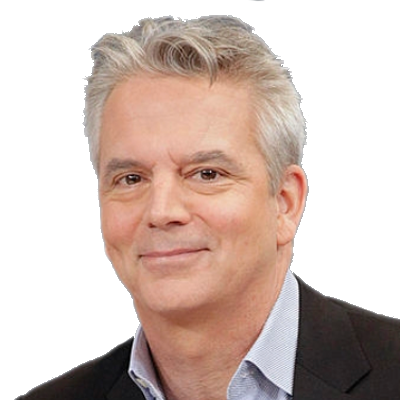Vaccinations begin, the old are saved, the corner diner reopens, families reunite, life returns to normal: The victory over COVID-19 might just get an old-fashioned Hollywood Ending.
But is COVID-19 also ending Hollywood?
If you like your melodramas neat, that’s the plot Warner Bros. delivered last week, when it announced plans to release its 2021 movies simultaneously in both theatres and on HBO Max, the streaming service it owns.
Cue the scary music.
“Some of our industry’s biggest filmmakers and most important movie stars went to bed the night before thinking they were working for the greatest movie studio and woke up to find out they were working for the worst streaming service,” thundered Tenet director Christopher Nolan in a statement.
“Warner Bros. had an incredible machine for getting a filmmaker’s work out everywhere, both in theatres and in the home, and they are dismantling it as we speak.

Christopher Nolan’s latest film Tenet was heralded as the yardstick for 2020.
“They don’t even understand what they’re losing. Their decision makes no economic sense, and even the most casual Wall Street investor can see the difference between disruption and dysfunction.”
Good and bad, hero and villain. To Nolan and many others, Warners –rattled by the box office devastation wrought by the pandemic – is choosing to kill off Cinema As We Know It, defiling the sacred communion of strangers sitting together in the dark.
The studio also is betraying its steadfast partners, the theatre chains, in their moment of greatest need. And they may be cutting out the talent from any lucrative “back end” compensation for films that become hits.
Talk about bad guys.
Nolan directed Dunkirk after all, and figures he knows a thing or two about defiance, honour and sacrifice in the face of existential threat. But what can you expect from a Hollywood institution that’s now owned by AT&T, a damn telephone company?
Warner Bros.’ move – a hedge bet, really – is in part motivated over whether audiences can, or will, return to theatres in big enough numbers next year to make a meaningful contribution to the bottom line. They’ll know if that bet pays off soon enough. If it doesn’t, heads will surely roll.
But the furore reveals just as much about Hollywood’s stubborn culture. The real outrage, Nolan admits, is that the town’s players – agents, directors, actors, producers, etc – weren’t told about Warner’s plans.
They were treated like hired help, gig workers, Uber drivers and delivery people – in other words, like everybody else in this COVID-battered new world order with little job security and even less of a say.
I live in New York, but spent a great deal of time in Hollywood as a magazine editor. There is a palpable hierarchy to the place that belies its casual demeanour – ranks of publicists, managers, trainers, stylists, drivers and other enablers in service to a fragile aristocracy always in fear of losing status.

The streets of Hollywood don’t feel like they used to. Photo: Getty
It’s full of successful people who are never entirely sure how to stay successful. And because that success is so mercurial, enormous tolerance is shown to those who manage to replicate it.
In that light, it’s a bit easier to comprehend the week’s other big Hollywood story – the fall of Johnny Depp.
He is now, according to the trade paper The Hollywood Reporter, “radioactive” in the wake of his catastrophic libel trial in London, where lurid allegations of abuse and assault made by his ex-wife Amber Heard were affirmed by the trial judge.
Depp’s behaviour – the rumours of spousal abuse, epic drug use, profligate spending, assault allegations against film crews – were common knowledge in Hollywood for years.
But he was a walking sack of doubloons – his Captain Jack Sparrow powered the Pirates of the Caribbean franchise to more than $5 billion in worldwide revenue for Disney, and earned Depp himself an estimated $650 million.
Which explains why Warner Bros. – yes, the very same studio now prompting so much anger for its tightfistedness – was contractually forced to pay Depp $16.5 million to not appear in the next Fantastic Beasts franchise in the wake of the London trial.
But back to our story. Is COVID, with its henchmen like Warner Bros, killing Hollywood?

Margot Robbie is one of Australia’s best-known Hollywood stars. Photo: Getty
Like they said in old gangster movies, “not so fast, buster.” Like lots of other media – music, print, television – the movie model is changing. But the changes are not binary.
People will stay at home and go to the movies. Theatres themselves need to change – becoming more modern, with better food, drink and overall comfort. People will still want to gather in the dark and share stories. They just need to be lured off the couch.
But who gathers will depend on what stories are told. For years now, Hollywood has been abandoning more adult fare –romantic comedies, thrillers, etc – in exchange for superhero franchises that get young people into theatre seats.
They’ve ceded that territory to streaming services. Is anyone complaining? Who wants to schlep out to a theatre to throw the dice on a Jennifer Aniston vehicle when you can stay in and watch The Crown?
Not that Hollywood isn’t trying to change. George Clooney may be 60, but he’s gamely trying to keep up with the times. In the midst of promoting his new movie, he revealed he suffered pancreatitis while filming from trying to lose weight too fast.
In the old days, stars denied having affairs on set. Now they talk about their gastrointestinal flare-ups.
I think I’ll stick with the old-fashioned endings.











